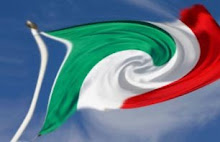
You could call it in many ways: a diktat, a blackmail for the common good, an opportunity not to be missed, an illuminate industrial move, a shot in the foot. Whatever your choice, what's happening these days at Pomigliano d'Arco, in Napoli's populous and stagnant hinterland, has become a paradigm for Italy's decline, its future as a manufacturer in a globalised world, and how Italians realize that something needs to be done to invert the trend.
Fiat, Italy's leading car manufacturer, employs over 5.000 people at its Pomigliano factory, where productivity has been lagging for years. Workers have been put in cassa integrazione (a scheme for workers forced to work less, with a token salary), the manufacturing activity has been moved to factories abroad. In the core of “the South” - a region where the stereotype (whether it's fair or not) describe people as lazy, lacking in initiative and always waiting for a beneficial intervention from the public hand – the “rust belt” could soon swallow Pomigliano as well.
Then comes Fiat's bitter pill, with some sugar on it (or a sugary pill with a bitter aftertaste, if you prefer). If the workers accept a new deal – involving more flexible work shifts, all in order to increase productivity – then production of the brand's low cost Panda car would be moved back from Poland, to Pomigliano. Otherwise, end of the story for a moribund plant.
It goes without saying that the new plan would not make Fiat a Chinese sweathop. We're talking about shifts of 8 hours, day or night for everybody; some more ore di straordinari (overtime work shifts); stricter standards in coverage of sick days. But yes: overall, work will be harder, at the expense of some free time. And it doesn't bode well for the trade unions in the long term, if the results of decades of struggles for more rights are reversed with such speed.
That's why the trade unions split. Most of them accepted the deal, but a leading more left-wing one – Fiom – opposed it. Fiat, then proposed a referendum on its plan – and heavily campaigned for the “Yes”. With their backs against the wall – work more, or else – it was widely expected that the 5,000 employees would swallow the pill. They duly did, but with at a lower percentage than expected: less then 65 per cent.
Supporters of the plan point out that the Pomigliano plant was notorious for its lack of professionality: workers calling in sick in droves, strikes organized during Italy's football matches. Opponents bemoan the loss of bargaining powers on the workers' side. Italy's radical left, which has been out of Parliament for two years and is growing more nostalgic as time goes by, is seething.
This writer has never harboured much sympathy towards Italian trade unions. More appropriately, to what has become of them: places where the only rights worth fighting for are those enjoyed by workers already protected, while the growing army of on-and-off, “flexible” young workers is left without representation, often to the benefit of incompetent workers taken on with safe contracts when the economy was in its golden years.
Conditions have changed. They have been for almost two decades, with the relocation of industrial production and the rise of cheaper Eastern European and Asian rivals in Italy's core industries. The political system, frozen in a “Love or Hate Berlusconi” bubble since 1994, has never dealt with this structural decline. Funds for R&D are constantly the first to be cut. In my current Italian visit, the signs of the crisis are everywhere. Almost every shopkeeper, small entrepreneur, employees with jobs at risk, is complaining, and hoping for better times. Next year, “they say in 2-3 years”... most likely, in my opinion: never, if the problems are not addressed.
Italy is losing battle after battle in the survival struggle in a globalised world, and a huge collective effort is required. Otherwise, the future is grim. The Argentinian spectre has been there for almost a decade: the Greek one is geographically much closer, and Italy is now constantly singled out as the “sick man of Europe”. The way out is neither a supine surrender to the padroni (“owners”), nor a hardline “no, signore” along nostalgic Communist hymns. I think there is room for a compromise, for an “Italy 2.0”. But the more time it takes for people to realize that something needs to be done, the more bitter will be the pills to swallow. Or it could just be too late.






